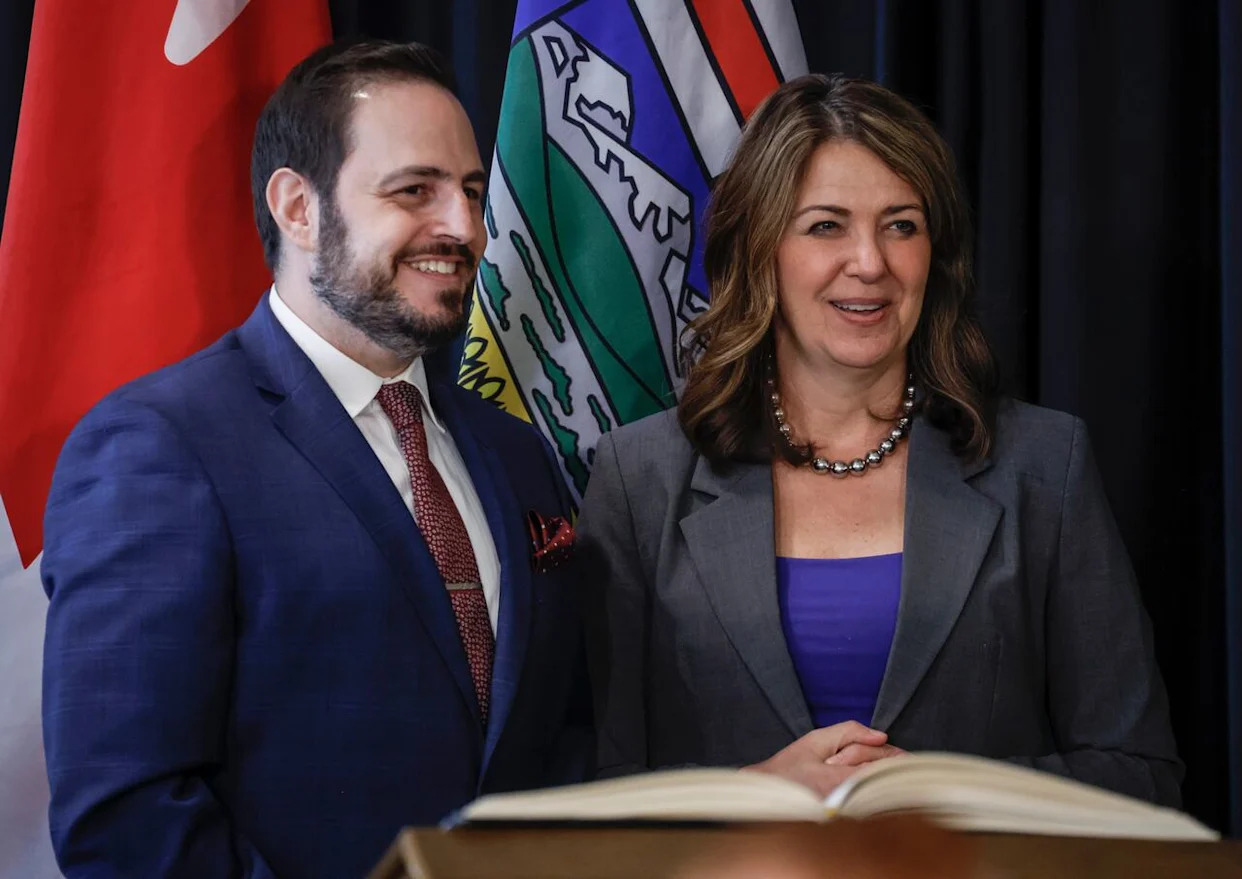Education
Alberta Premier Pushes for Accelerated Teacher Training Program

Alberta’s Premier Danielle Smith has announced plans to expedite the teacher training process in the province. She has directed the education and advanced education ministers to develop an “abbreviated” teacher training program aimed at individuals with existing post-secondary qualifications. This initiative is part of a broader strategy to address teacher shortages and improve educational outcomes across Alberta.
In her mandate letters to Demetrios Nicolaides, the Minister of Education and Childcare, and Myles McDougall, the Minister of Advanced Education, Smith emphasized the need to create a teaching certification program that would allow individuals trained in “relevant fields” to teach without requiring a full education degree. This approach seeks to bring in professionals with expertise from various industries into the classroom more swiftly.
Changes to Teacher Certification Requirements
Current regulations mandate that classroom teachers in Alberta must complete a minimum of four years of university education, which includes teacher training preparation. The new proposal represents a significant shift from this standard. Nicolaides noted that the existing “bridge-to-teacher” program, which permits skilled tradespeople and professionals to teach with interim certification while completing additional coursework, has seen limited uptake with only 113 individuals receiving provincial grants for the program over the past five years.
This abbreviated credential would permit individuals to instruct only in their specific areas of expertise, raising questions about the implications for teaching quality and professional standards. Nicolaides acknowledged that discussions about teacher compensation and the recognition of the new certification by other provinces are still pending.
The Alberta Teachers’ Association (ATA) has voiced concerns regarding the proposed changes. President Jason Schilling expressed apprehension that fast-tracking certification could undermine the teaching profession. He emphasized that training involves more than just subject expertise, noting that teachers must also learn how to interpret curriculum, assess student needs, and manage classroom dynamics effectively.
Impact on Child Care and Education Initiatives
Alongside the push for expedited teacher training, Premier Smith has tasked Nicolaides with negotiating a new federal-provincial agreement aimed at making child care more affordable in Alberta. The current deal, worth $3.8 billion, aims to reduce child care costs to $10 per day by 2026 and includes a commitment to create 68,700 new licensed child-care spaces by March 2027. However, Alberta has not yet extended its agreement with the federal government, which is set to expire on April 1.
Child Care Now Alberta chair Susan Cake criticized the province’s demands for special treatment in negotiations, suggesting that a more collaborative approach with the federal government could yield better outcomes for families. She highlighted the need for the government to prioritize the expansion of child-care spaces, particularly in areas where access is limited.
Additionally, Nicolaides has been instructed to enhance educational opportunities in skilled trades for junior and senior high school students. This includes establishing a high-school apprenticeship system and increasing awareness of trades careers among adolescents.
As the provincial government works towards implementing these initiatives, it faces the challenge of balancing the need for quick solutions with the necessity of maintaining educational standards and ensuring that both teachers and students are adequately supported.
-

 Education4 months ago
Education4 months agoBrandon University’s Failed $5 Million Project Sparks Oversight Review
-

 Science5 months ago
Science5 months agoMicrosoft Confirms U.S. Law Overrules Canadian Data Sovereignty
-

 Lifestyle5 months ago
Lifestyle5 months agoWinnipeg Celebrates Culinary Creativity During Le Burger Week 2025
-

 Health5 months ago
Health5 months agoMontreal’s Groupe Marcelle Leads Canadian Cosmetic Industry Growth
-

 Science5 months ago
Science5 months agoTech Innovator Amandipp Singh Transforms Hiring for Disabled
-

 Technology5 months ago
Technology5 months agoDragon Ball: Sparking! Zero Launching on Switch and Switch 2 This November
-

 Education5 months ago
Education5 months agoNew SĆIȺNEW̱ SṮEȽIṮḴEȽ Elementary Opens in Langford for 2025/2026 Year
-

 Education5 months ago
Education5 months agoRed River College Launches New Programs to Address Industry Needs
-

 Business4 months ago
Business4 months agoRocket Lab Reports Strong Q2 2025 Revenue Growth and Future Plans
-

 Technology5 months ago
Technology5 months agoGoogle Pixel 10 Pro Fold Specs Unveiled Ahead of Launch
-

 Top Stories4 weeks ago
Top Stories4 weeks agoCanadiens Eye Elias Pettersson: What It Would Cost to Acquire Him
-

 Technology3 months ago
Technology3 months agoDiscord Faces Serious Security Breach Affecting Millions
-

 Education5 months ago
Education5 months agoAlberta Teachers’ Strike: Potential Impacts on Students and Families
-

 Business1 month ago
Business1 month agoEngineAI Unveils T800 Humanoid Robot, Setting New Industry Standards
-

 Business5 months ago
Business5 months agoBNA Brewing to Open New Bowling Alley in Downtown Penticton
-

 Science5 months ago
Science5 months agoChina’s Wukong Spacesuit Sets New Standard for AI in Space
-

 Lifestyle3 months ago
Lifestyle3 months agoCanadian Author Secures Funding to Write Book Without Financial Strain
-

 Business5 months ago
Business5 months agoNew Estimates Reveal ChatGPT-5 Energy Use Could Soar
-

 Business3 months ago
Business3 months agoHydro-Québec Espionage Trial Exposes Internal Oversight Failures
-

 Business5 months ago
Business5 months agoDawson City Residents Rally Around Buy Canadian Movement
-

 Technology5 months ago
Technology5 months agoFuture Entertainment Launches DDoD with Gameplay Trailer Showcase
-

 Top Stories4 months ago
Top Stories4 months agoBlue Jays Shift José Berríos to Bullpen Ahead of Playoffs
-

 Technology5 months ago
Technology5 months agoWorld of Warcraft Players Buzz Over 19-Quest Bee Challenge
-

 Top Stories3 months ago
Top Stories3 months agoPatrik Laine Struggles to Make Impact for Canadiens Early Season










